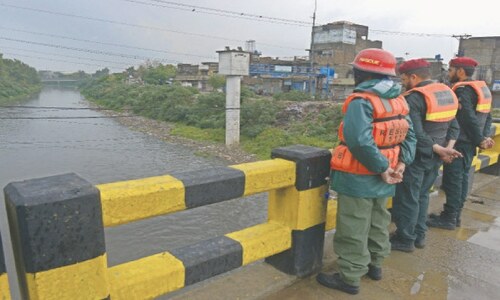ISLAMABAD: There are no shortcuts to women’s empowerment, National Health Services (NHS) Minister Saira Afzal Tarar said on Wednesday, emphasising the need for education and awareness among women about their rights for substantial change.
Ms Tarar was speaking at the launch of a study titled Strengthening Governance in Health System for Reproductive Health and Rights in Pakistan: An Intervention Case Study, hosted by the National Commission on the Status of Women (NCSW) at the Islamabad Club.
The minister called for culture-sensitive approaches for all initiatives and projects for women’s reproductive health and rights (RHR) at the district-level, and said no law could be implemented if society rejected to changes to its traditions and norms.
Ms Tarar also said men need to be engaged in advocacy efforts, and added that the lack of human resources was the biggest challenge facing the health sector at the district level.
NCSW Chairperson Khawar Mumtaz also spoke at the event, focusing on alarming health indicators for women.
NHS minister says there are no shortcuts to women empowerment, emphasises need for education
“The health budget is doubled and donors have also been extending aid in the health sector – especially reproductive health – but unfortunately we have failed to achieve the results,” she said.
Ms Mumtaz also announced the formation of a committee at the commission to devise a national framework for women’s RHR.
The study, which was conducted by the women’s rights organisation Shirkat Gah, is based on the findings of a four-year intervention (from 2014 to 2017) in six districts of the country’s four provinces.
Shirkat Gah Executive Director Farida Shaheed said the biggest obstacle to women’s reproductive health and rights is the social mindset.
“Girls are not supposed to discuss reproductive health issues. Even if reproductive health facilities are available in the locality, visiting such a facility is considered a source of shame – especially for girls. And when a girl reaches the facility, she doesn’t discuss her issue with the doctor directly. She is always represented by her family member,” Ms Shaheed said.
At the district level, she said people were more comfortable visiting public health facilities but there were complaints of discouraging or rude behaviour from the staff at such facilities. Those who came in contact with public health facilities had also reported sexual harassment by male staff, she said.
The report recommends a strong government and civil society communications strategy to raise awareness about reproductive health issues and sensitise healthcare staff.
It also suggests the provision, repair and maintenance of medical equipment, a better complaints mechanism, refresher courses and technical training for staff, and for the code of conduct on sexual harassment to be displayed at district health centres.
Published in Dawn, December 14th, 2017















































Dear visitor, the comments section is undergoing an overhaul and will return soon.